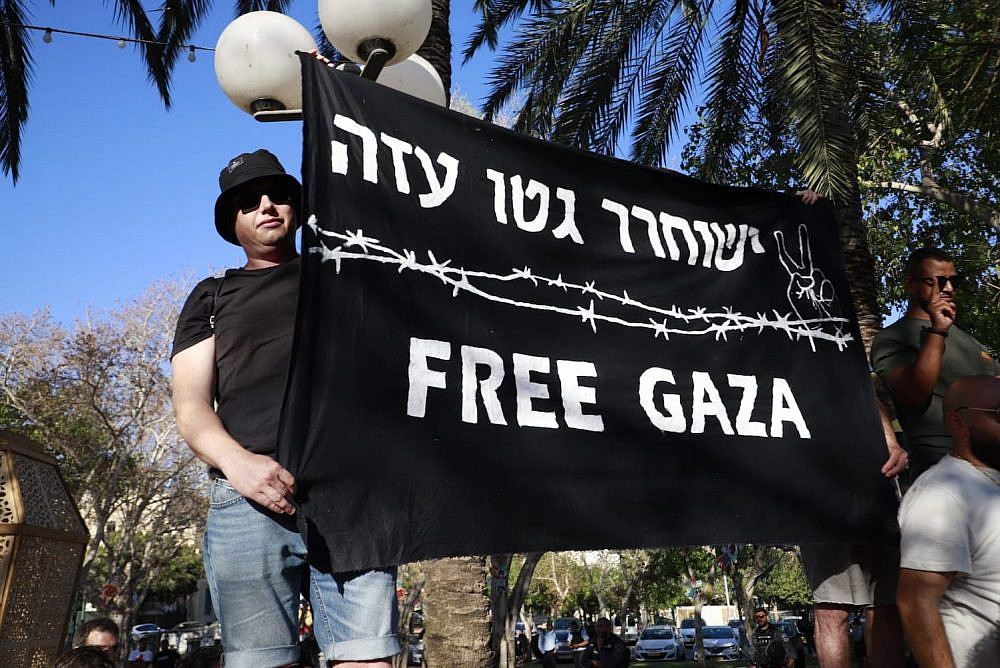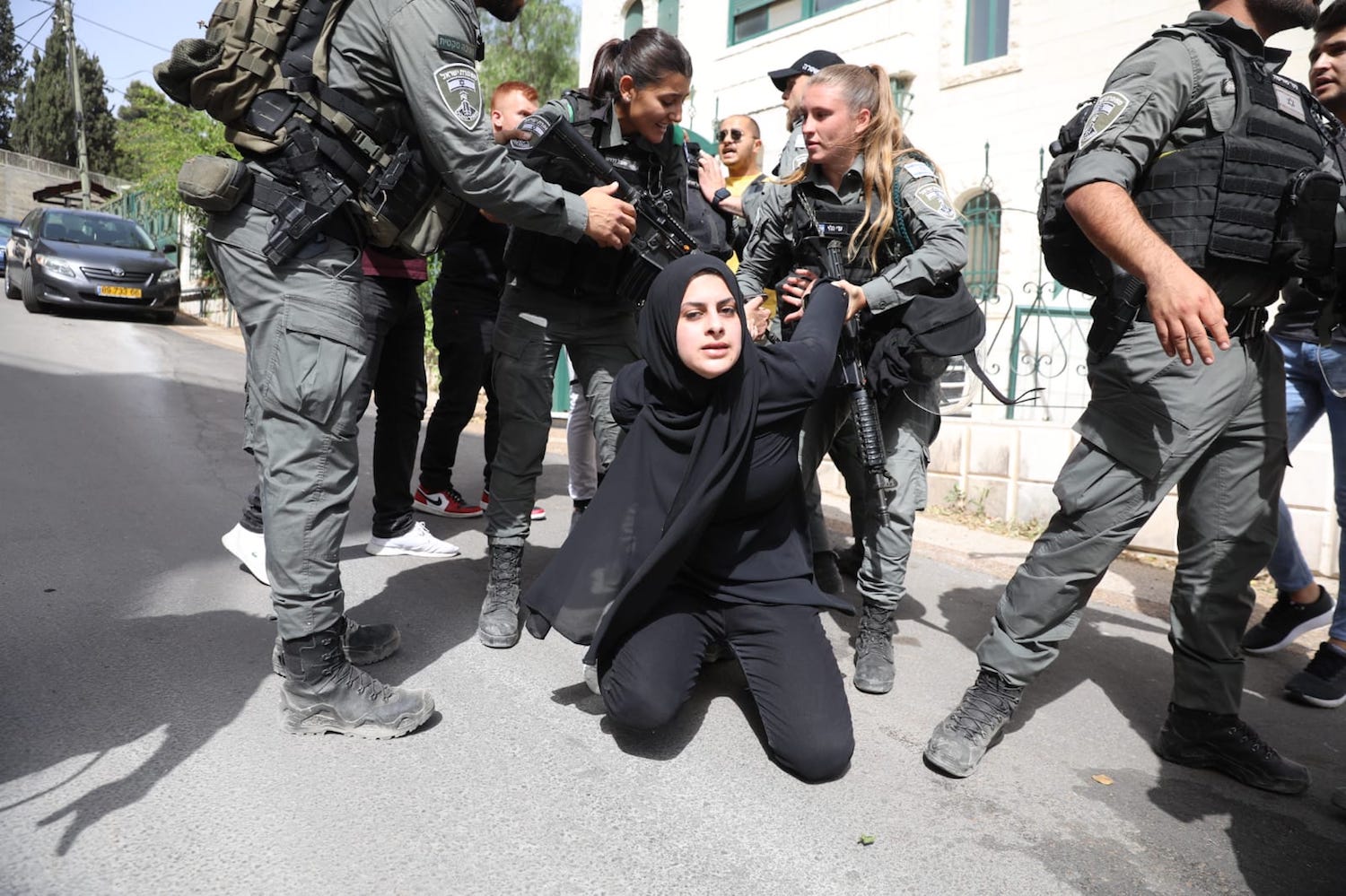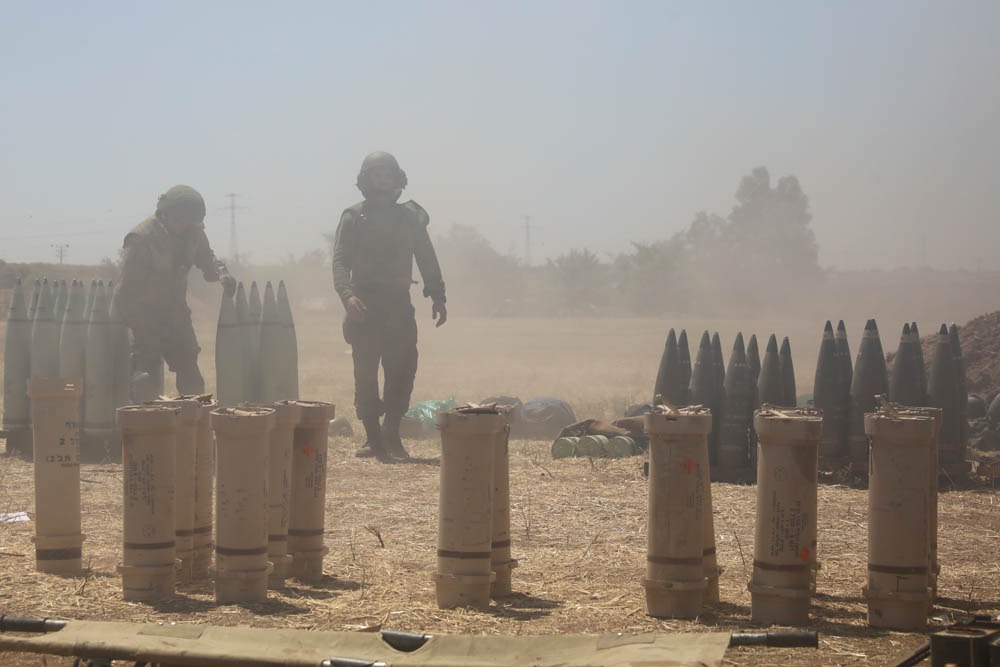As of Wednesday, the death count in Israel-Palestine stands at 227 Palestinians in Gaza and 12 in Israel. These numbers reveal an undeniable discrepancy in power and, consequently, in suffering. Undeterred by the numbers, the State of Israel and its supporters have devised an array of rhetorical tools to justify Israel’s violence and the disproportionate number of Palestinian casualties. A pair of deceptively innocent arguments are proving particularly popular: “It’s complicated,” and “There are two sides to the story.”
How can one argue with complexity? Of course it’s complicated; there is never just one side to a story. But there are never just two sides either. Every story can be broken down into its molecules, dissected in myriad different ways, and looked at from an endless number of perspectives. This is a great way to look at the situation in Palestine if you’re writing a dissertation on it, but it is no way to conduct politics.
Politics is about choosing sides. If you look at the chain of events that led to this escalation — and the oppressive status quo that caused those events — and all you can say is “it’s complicated,” you haven’t done your political duty.
The apartheid regime that Israel has created, with its racial hierarchy, displacement, and military occupation, is at the root of the so-called “conflict.” Israel has sovereign power over the entire land between the river and the sea. More specifically, the Israeli government consciously chose to start the current escalation because of a confluence of its Jewish supremacist ideology and Netanyahu’s narrow political interests. The displacement of Palestinians in Sheikh Jarrah has long been facilitated by the regime, part of the wider project of ongoing ethnic cleansing that began with the Nakba in 1948.
The latest protests in Sheikh Jarrah came right as Netanyahu was facing a potential Jewish-Palestinian coalition that could have dethroned him, leaving him to face his corruption charges. In what can be seen as a deliberate attempt to spark tensions, Netanyahu’s government reacted to the Sheikh Jarrah protests by raiding Al-Aqsa Mosque.
Within two days, after rockets were launched into Israel, Israel began its ongoing onslaught on Gaza and violence erupted in the streets, this proposed coalition fell apart. The internal reasons for the escalation are less relevant in the face of the ongoing reality of violent subjugation of Palestinians that will continue to devolve into bloodshed as long as it is maintained. What matters is that the Israeli regime, which carries out this subjugation, bears overall responsibility for the escalation and can choose to end it, but so far has refused to negotiate a ceasefire.
There are no “two sides” to this truth, and choosing to stand against Israel’s oppression and aggression is not morally complicated. With that in mind, I’m writing this for you if you are already convinced or suspect that, but something is stopping you from opposing Israel anyway.
The thing that’s giving you pause may be your love and care for what you see as the Israeli people. By that I mean us Jews who are citizens of Israel, setting aside Palestinian citizens of Israel and others who don’t fall into this category. You may have Israeli friends and family members sitting in bomb shelters, or even loved ones who were hurt by a missile or by street violence. You may just feel a special connection to Israelis because you were brought up to love us as your siblings. Love and care are never a bad thing. I’m happy that you care about us. But this should not stop you from opposing the State of Israel. On the contrary: our suffering should make you more angry at the regime, not more forgiving.
Israeli pain has long been exploited by the regime and its supporters to justify violence toward Palestinians. It’s a cynical tactic. It focuses on our wounds not in order to heal them, but in order to perpetuate endless violence that will only lead to more wounds — mostly Palestinian wounds, but very much Israeli wounds too.
Exploitation of pain is not merely a hasbara tactic, it is at the very heart of Israeli identity. It starts with our collective historical traumas, from the pogroms to the Farhud and most especially the Holocaust, which are used to justify our supposed need for an ethno-state. It continues with the loss of our soldiers, whom we mourn yearly right before Independence Day. Their “sacrifice” justifies our highly militarized culture — the myth of “the people’s army” — in which everybody serves and the lines between civilian and soldier become evermore blurry. Our collective traumatization from missile attacks, suicide bombings, and desperate knife attacks is used to convince us that building more walls is the only way to keep us safe.
Suffering is used in Israel as a social glue. We are presumed to be united in loss and grief. Israeli suffering is not homogenous, however. Israel’s internal racial hierarchy, which places Ashkenazi Jews on top and Mizrahi and Ethiopian Jews at the bottom (right above Palestinians), ensures the unequal distribution of pain. The brutal neoliberal policies of recent decades further perpetuate inequality and suffering. The Israeli people are plagued not only with constant warfare but with a high cost of living, low wages, and a persistent deterioration of the social safety net. Almost a third of Israeli children live in poverty while a small elite grows richer by the day. In the name of standing united against external enemies, Zionism has created a deeply divided society.
The Israeli regime is not something external that happens to us Israelis, however. We are not its helpless pawns, but rather its willing upholders. While we should by no means minimize the Israeli people’s responsibility for the regime’s violence against Palestinians, we must also recognize how this violence harms us, too, and just how destructive it is. Recognizing the ways in which the calamitous logic of the Israeli regime also turns inward is a crucial step towards being able to move forward from our association with this oppressive regime, and ultimately, toward dissolving it and building something better.
As I try to talk about Israeli pain, even my own personal pain, I feel a kind of awkward unease. Is our pain not perpetuating Zionist propaganda? Maybe it is. But it shouldn’t. Zionism promised us a safe haven, and delivered us nothing but constant war, deprivation, and strife. As Israeli anti-Zionists, we must not let Zionists exploit our pain. And for non-Israelis who love us: you should be anti-Zionist because of the injustice Zionism brings on Palestinians. But if what’s stopping you is feeling as if you need to also protect us Israelis — don’t hesitate.



